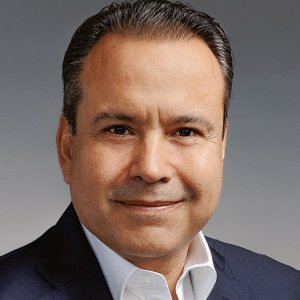Smart Grids a Great Market Opportunity

STORY INLINE POST
Q: How can smart grids revolutionize the power industry in Mexico?
A: Smart grids have the potential to innovate the power industry’s processes at any level, bringing financial and environmental benefits such as reducing the country’s carbon footprint. Smart grids are mostly used in Mexico at the distribution level, mainly on metering systems. CFE started investing in this technology in 2014 by launching a call for bids to establish Advanced Metering Infrastructure (AMI) contracts. Other efforts followed to implement smart meters with information and communications systems. Between 2014 and 2015, a bid package totaling US$1.3 billion was launched, with another in 2016 bringing a total US$530 million investment in smart metering solutions to decrease technical and nontechnical losses. Thanks to these measures, CFE’s energy losses have decreased from 17 percent to 13 percent in a couple of years. Smart grids are a specific solution to macro-level energy problems. In addition to incorporating a larger share of renewables into the grid, it has the potential to boost the residential market for renewables and to optimize the national electricity system to avoid having more energy reserves than it actually needs.
Q: What are the main business opportunities the Mexican market offers smart grid companies?
A: Companies bidding for AMI contracts will have the greatest market opportunity in the short term, which will create a need for research institutes and specialized companies to analyze how AMI should be integrated into the grid. We also must increase the market’s knowledge about how to integrate more renewables into the grid, especially as DG will become the most interesting sector in the coming years. But the most relevant business opportunities will come in the longer run, when we expect to see higher demand for data and grid stability analysis software as well as simulation and integration systems. There are no Mexican companies providing these services yet and we need to start developing the market to avoid future dependency on imported talent and technologies. Operators need to ensure that the power grid is safe and functioning optimally because energy supply is a matter of national security. CENACE is doing an admirable job as the grid operator but it needs to adapt to the new market conditions and develop research labs and think tanks to address the network’s issues.
Q: What challenges is CENACE facing and how can smart technologies help optimize grid operation?
A: One of CENACE’s main challenges will be the integration of larger portions of renewable energies into the grid. It must decide when and how this integration will take place and develop new fast-track metering systems to accompany this transition. Other challenges will be the grid’s modernization and improving decision-making processes. Building a smart grid is an evolving process that requires multiple technologies and innovations such as the recent developments made in wide-area measurement systems compiling real-time Phasor Measurement Unit (PMU) information, which can be used to operate the grid more efficiently. Integrating smart grids and modernizing the power network is a global challenge facing all grid operators at different levels, not only in Mexico.
Q: How are regulations promoting smart grid technologies in Mexico and what is needed to boost this sector?
A: The secondary regulations arising from the Electricity Industry Law and the Energy Transition Law already define a particular framework for smart grid development in Mexico. Both regulations assign responsibilities and have led to the creation of a smart grid consultative council presided by the Ministry of Energy and comprised of government representatives as well as members from CFE Distribución and private industry. Smart Grid México collaborates in this with the Transformation Industry’s Chamber of Commerce (CANACINTRA) as the private sector’s representatives. This council is important because it promotes dialogue between the parties, contributing to the industry’s development.
























